PERSONALITY DISORDERS
What are Personality Disorders?
Personality disorders are a group of mental health conditions marked by persistent patterns of behavior, thinking, and emotional responses that differ significantly from cultural expectations. These patterns are often rigid and long-lasting, causing distress and impairing social, occupational, and other areas of functioning. Personality disorders usually emerge in adolescence or early adulthood and require professional intervention to manage effectively.
Beyond just a physical dependence, addiction also includes emotional and psychological components, making it challenging to overcome without help. At Mind Weavers, we understand the complexities of addiction and are here to provide the support and treatment needed for a successful recovery.

Types of Personality Disorders
Personality disorders are categorized into three clusters based on similar characteristics and symptoms:
- Cluster A (Odd or Eccentric Disorders):
- Paranoid Personality Disorder: Characterized by pervasive distrust and suspicion of others.
- Schizoid Personality Disorder: Characterized by a lack of interest in social relationships and a limited range of emotional expression.
- Schizotypal Personality Disorder: Characterized by acute discomfort in close relationships, cognitive or perceptual distortions, and eccentric behavior.
- Cluster B (Dramatic, Emotional, or Erratic Disorders):
- Antisocial Personality Disorder: Characterized by a disregard for and violation of the rights of others.
- Borderline Personality Disorder: Characterized by instability in relationships, self-image, and emotions, and marked impulsivity.
- Histrionic Personality Disorder: Characterized by excessive emotionality and attention-seeking behavior.
- Narcissistic Personality Disorder: Characterized by grandiosity, need for admiration, and lack of empathy.
- Cluster C (Anxious or Fearful Disorders):
- Avoidant Personality Disorder: Characterized by social inhibition, feelings of inadequacy, and hypersensitivity to negative evaluation.
- Dependent Personality Disorder: Characterized by an excessive need to be taken care of, leading to submissive and clinging behavior.
- Obsessive-Compulsive Personality Disorder: Characterized by a preoccupation with orderliness, perfectionism, and control (different from OCD).
Managing Personality Disorders
Managing personality disorders typically involves a combination of psychotherapy, medication, and support. Treatment approaches include:
- Psychotherapy: Cognitive-behavioral therapy (CBT), dialectical behavior therapy (DBT), psychodynamic therapy, and other therapeutic modalities.
- Medication: Antidepressants, mood stabilizers, antipsychotics, or anti-anxiety medications may be prescribed to manage specific symptoms.
- Support Groups: Participation in support groups for individuals with personality disorders.
Treatment for ADHD

ADHD can be effectively managed with a combination of treatments, which may include:
– Medications: Stimulants (e.g., methylphenidate, amphetamines) and non-stimulants (e.g., atomoxetine, guanfacine)
– Behavioral Therapy: Helps develop positive behaviors, organizational skills, and coping mechanisms
– Skill Training: Attention retraining & Hyperactivity management
– Counseling and Psychotherapy: For individuals and families to address emotional and social issues
– Educational Support: Special education services, individualized education programs (IEPs), and classroom accommodations
You've taken the first step now let us help you find the right support
Recognizing Clinical Depression
– Lasting sadness
– Loss of interest in most activities
– Constant fatigue or low energy
– Negative thoughts
– Feelings of worthlessness, hopelessness, or guilt
– Difficulty concentrating on daily tasks
– Changes in eating and sleeping patterns
– Restlessness or irritability
– Physical aches and pains without a clear cause
– Thoughts of death or suicide
Signs Your Child
Needs to See a Child psychiatrist
Recognizing when your child may need to see a psychiatrist is crucial for addressing their emotional and mental well-being. Here are some signs that may indicate it’s time to consider seeking help from a Child Psychologist in Calicut:
- Your child is dealing with a significant change or a stressful situation, like bullying, a health issue, divorce parents, or a move to a new city or school.
- Your child's mental, emotional, and behavioral problems seem to be getting worse over time instead of better.
- Your child or family has experienced trauma, such as a death, an accident, or abuse.
- Your child encounters challenges when it comes to forming and maintaining friendships.
- You notice big notable shifts in your child's temperament and behavior.
- They often have trouble with their behavior in school.
- Your child is worrying to much for trivial things
- Your child's grades are dropping.
Common Conditions Addressed at Our Center
Clinical child psychology is a field dedicated to researching, evaluating, and addressing a broad spectrum of interconnected biological, psychological, and social challenges encountered by children.

ANXIETY
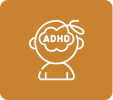
ADHD

DEPRESSION

AUTISM

LEARNING PROBLEMS

BEHAVIOURAL PROBLEMS

ADJUSTMENT PROBLEMS

STRESS
At Mind Weavers, our Child Psychologists are well-versed in the latest evidencebased interventions, providing personalized counseling to address the unique needs of each child.
Skills and Procedures Utilized
Clinical child psychology encompasses a wide range of procedures and skills addressing your child’s needs, including:
- Assessment (e.g., psychological, intellectual, cognitive, and behavioral evaluation).
- Intervention (e.g., psychotherapy and applied behavior analysis).
- Prevention program development (e.g., school readiness,bullying, addictions, obesity).
- Consultation with transdisciplinary team
- Evidence based Practices

Services Offered By Our Center
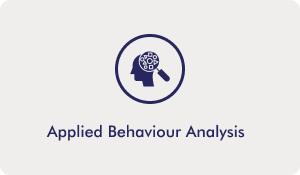
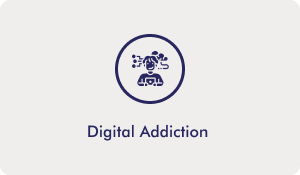
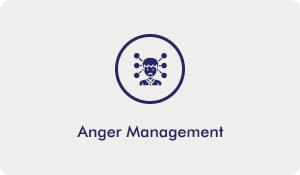
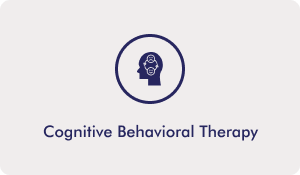
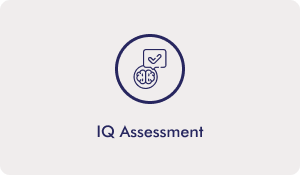
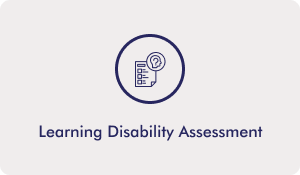
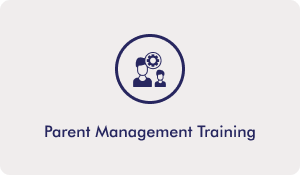

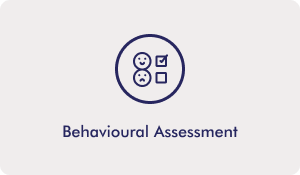
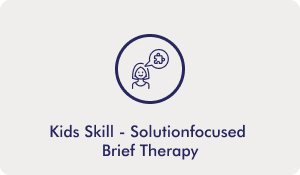
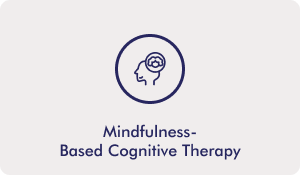
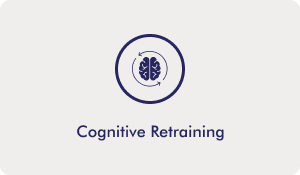
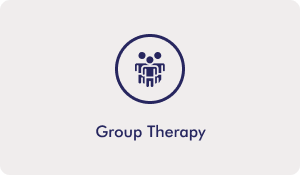

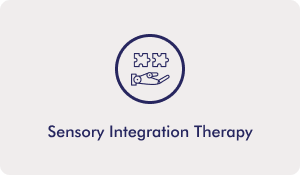
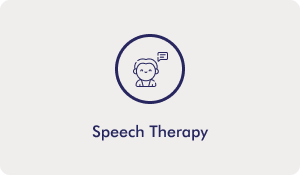
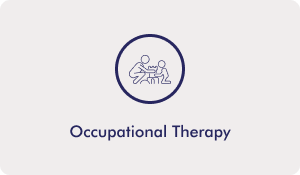
These services are administered by experienced and compassionate clinical psychologists and therapists that ensure your child receives the care and support they need to lead healthier and more fulfilling lives.
FAQs on Personality Disorders
Personality disorders are mental health conditions characterized by enduring patterns of behavior, cognition, and inner experience that deviate significantly from cultural expectations and cause distress or impairment.
Personality disorders are diagnosed by a mental health professional through a comprehensive evaluation that includes discussing symptoms, medical history, and patterns of behavior.
Yes, personality disorders can be treated with psychotherapy, medication, and support, although treatment effectiveness varies depending on the specific disorder and individual.
Personality disorders are believed to result from a combination of genetic, environmental, and psychological factors, including family history, childhood trauma, and neurological differences.
Supporting someone with a personality disorder involves being patient and understanding, encouraging them to seek professional help, and providing emotional support without enabling harmful behaviors.
Personality disorders are distinct from other mental health disorders in that they involve pervasive and enduring patterns of behavior and thinking that affect multiple areas of life.
Personality disorders are typically diagnosed in adolescence or early adulthood, but early signs and symptoms can sometimes be observed in children.
Yes, personality disorders often coexist with other mental health conditions such as depression, anxiety, substance use disorders, and other psychiatric disorders.
Help for personality disorders can be found through:
– Mental health professionals, such as psychologists, psychiatrists, and counselors
– Support groups and organizations specializing in personality disorders
Mind Weavers for Adult Psychology -
Why We're Different?
✨Experience:
Mind Weavers stands out in the field of adult psychology for several reasons. Our team of licensed professionals brings a wealth of experience in dealing with adult psychological issues. We understand that adulthood is a time of significant transition and are committed to helping you navigate this period with empathy and expertise.
✨Understanding Issues from The Root:
We support a comprehensive strategy for mental health. Hence, it means we don’t just focus on your symptoms; we explore the root causes of your challenges. Therefore, by addressing these underlying issues, we aim to provide long-lasting solutions that improve your overall well-being.
✨Supportive Environment:
Another reason to choose Mind Weavers is our commitment to creating a supportive environment. We know that discussing mental health can be difficult, which is why we prioritize creating a safe, non-judgmental space. Our goal is to make you feel comfortable and heard, ensuring that you can openly discuss your concerns and challenges.
✨Flexible Treatment Plans:
Additionally, we offer flexible treatment options tailored to fit your lifestyle. So, whether you prefer in-person sessions or online consultations, we make it easy to access the help you need. Our flexible scheduling and various therapy modalities ensure that you can find the right fit for your needs.
Therefore, take the first step towards a healthier adulthood by choosing Mind Weavers. Your mental well-being deserves the best care, and we’re here to provide it.
Choosing Mind Weavers for
Your Child's Well-Being
At Mind Weavers, our aim is to have a happy, playful, and confident child.
We prioritize your child’s well-being and offer top-quality mental health services to support their growth and happiness. Our dedicated professionals including child psychologists, therapists, and counelors help children overcome challenges, develop crucial life skills, and thrive emotionally.
At Mind Weavers, you’re choosing more than specialized services; you’re selecting a caring and nurturing environment that fosters resilience, self-assurance, and a positive outlook.


